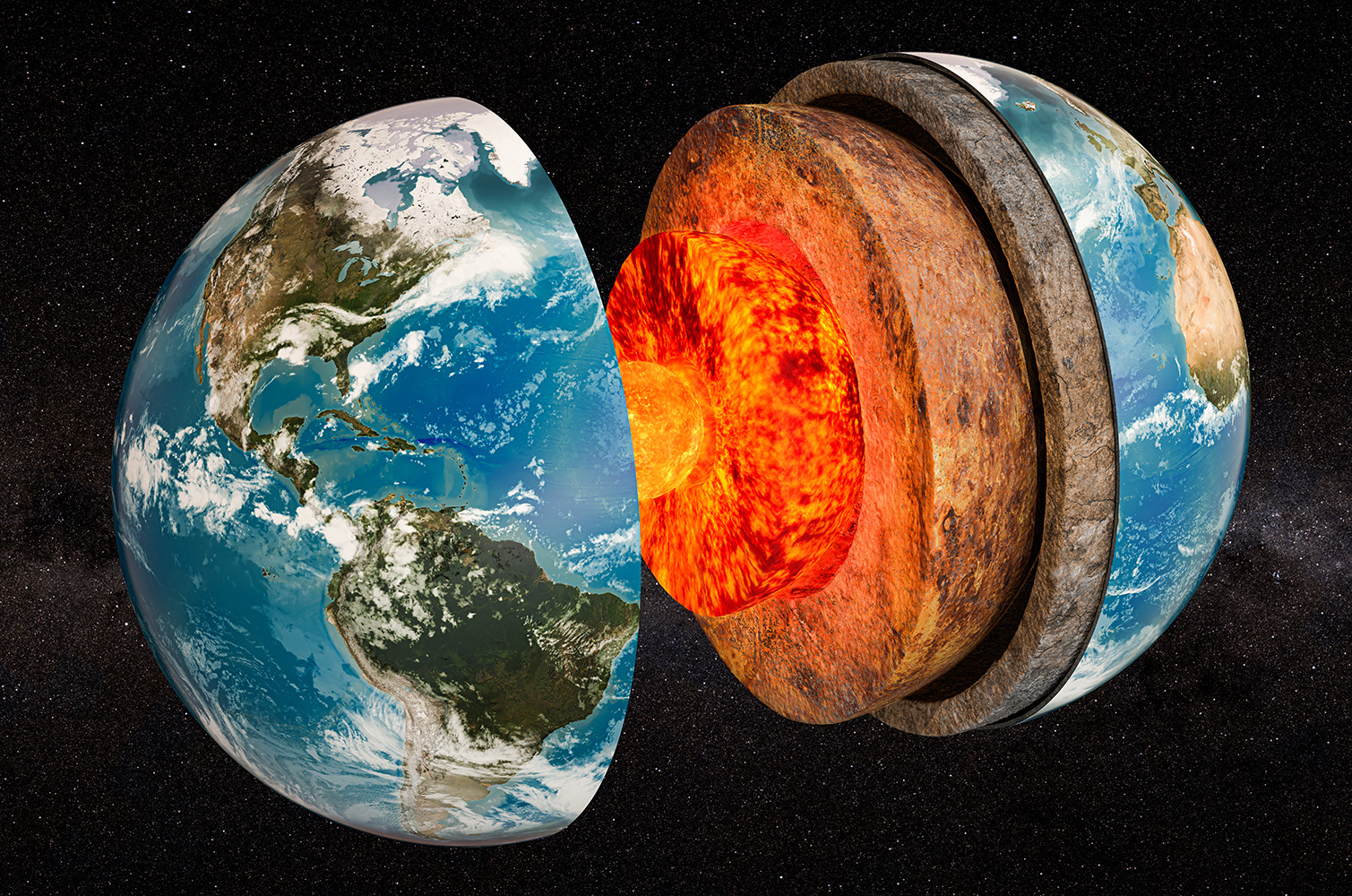
Two members of the Department of Geology and Geophysics in the College of Arts and Sciences at Texas A&M University have garnered prestigious accolades from the American Geophysical Union (AGU).
Dr. Jin Zhang, who joined the Texas A&M faculty as an associate professor in fall 2022 after previously being affiliated with the University of New Mexico, and Dr. Wenyi Zhou, who currently is serving as a postdoctoral research associate within the department, have been honored with the Mineral and Rock Physics Early Career Award and the Mineral and Rock Physics Graduate Research Award, respectively.
The Mineral and Rock Physics Early Career Award is presented annually and recognizes outstanding contributions by an early-career scientist in the broadly defined area of mineral and rock physics. Successful nominees must be within 10 years of receiving their Ph.D. or highest terminal degree.
The Mineral and Rock Physics Graduate Research Award is presented annually to one or more promising young scientists and recognizes outstanding contributions to the field of mineral and rock physics achieved during the honoree’s Ph.D. research. The nominee should be engaged in experimental or theoretical studies on Earth and planetary materials with the purpose of unravelling the physics and chemistry behind their origin and physical properties.
Both noteworthy recognitions were officially announced in September as part of the AGU Honors Program for 2023. The distinguished awardees will receive their accolades during AGU23, a global gathering that will unite more than 25,000 participants from over 100 nations, both in San Francisco and through online platforms, from Dec. 11-15, 2023.
We are very honored to have Dr. Zhang and Dr. Zhou as members of our department community. Dr. Zhang is an exceptional scientist and research mentor and is highly deserving of this recognition of her work at this early stage of her career. The energy and scientific curiosity that she has brought to Texas A&M are remarkable. We are also so pleased to have Dr. Zhou as part of our research community, and we know that she is on the path to a very successful career.
Zhou's award specifically acknowledges the graduate research conducted during her tenure as a Ph.D. student at the University of New Mexico under Zhang’s mentorship.
Dr. Julie Newman, professor and head of Texas A&M Geology and Geophysics, notes this accomplishment stands out as an exceptionally rare occurrence, wherein both a Ph.D. student and their advisor simultaneously receive prestigious awards from the AGU.
"We are very honored to have Dr. Zhang and Dr. Zhou as members of our department community," Newman added. “Dr. Zhang is an exceptional scientist and research mentor and is highly deserving of this recognition of her work at this early stage of her career. The energy and scientific curiosity that she has brought to Texas A&M are remarkable. We are also so pleased to have Dr. Zhou as part of our research community, and we know that she is on the path to a very successful career."
Zhang is a high pressure-temperature mineral physicist whose research focuses on the compositions, structures and dynamics of the Earth and other planets through high pressure (P)-temperature (T) experiments. Her primary research tool is Brillouin spectroscopy for in situ sound velocity measurements of Earth and planetary materials, which are essential for interpreting various geophysical/geochemical observations in the planetary interiors. Zhang received her Ph.D. in geology from the University of Illinois in 2014.
"I would like to express my gratitude to the AGU for the Mineral and Rock Physics Early Career Award," Zhang said. "It is indeed a privilege to be recognized with this honor."
After earning her Ph.D. from the University of New Mexico in 2022, Zhou has continued her pursuit of groundbreaking research within the field of mineral physics at Texas A&M. She has devoted her postdoctoral research to establishing a multi-dimensional chemical model of the Earth's mantle transition zone, which is potentially the largest water reservoir inside the Earth, based on high pressure-temperature laser spectroscopy experiments and geophysical observations. Zhou's work represents a significant leap toward establishing a comprehensive, multi-dimensional chemical model of Earth's interior.
"I feel very fortunate to have had Dr. Zhang as my advisor in the past years during my Ph.D. research,” Zhou said. “Dr. Zhang has been supportive, knowledgeable and open-minded. It's a pleasure to work with her and many other excellent researchers on topics ranging from the Earth's interior to the Martian interior."
Learn more about research opportunities in Texas A&M Geology and Geophysics.
About Research At Texas A&M University
As one of the world’s leading research institutions, Texas A&M is at the forefront in making significant contributions to scholarship and discovery, including in science and technology. Research conducted at Texas A&M generated annual expenditures of more than $1.153 billion in fiscal year 2022. Texas A&M ranked 16th in the most recent National Science Foundation’s Higher Education Research and Development Survey based on annual expenditures of more than $1.148 billion in fiscal year 2021. Texas A&M’s research creates new knowledge that provides basic, fundamental and applied contributions resulting, in many cases, in economic benefits to the state, nation and world. To learn more, visit Research@Texas A&M.

